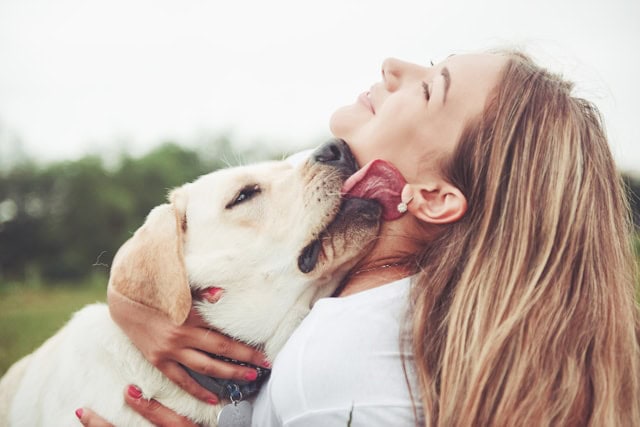How To Unleash Your Golden Retriever’s Full Potential
Introduction

How to Unleash Your Golden Retriever’s Full Potential. Golden Retrievers are among the most beloved dog breeds in the world, cherished for their friendly disposition, intelligence, and loyalty.
Whether you are a new pet owner or considering adopting a Golden Retriever, this comprehensive guide will give you essential insights into their characteristics, care requirements, and training techniques. Understanding these aspects will help you build a strong bond with your furry companion while ensuring they lead a happy and healthy life.
Table of Contents
Characteristics of Golden Retrievers
Physical Attributes
Golden Retrievers are well-known for their striking appearance. They have a dense, water-repellent double coat that ranges from light golden to dark golden shades. Adult males typically weigh between 65 and 75 pounds, while females range from 55 to 65. Their firm, muscular build allows them to be active and versatile dogs, suitable for various activities, including hunting, therapy work, and family companionship.
In addition to their physical strength, they have a friendly expression characterized by dark, kind eyes and a broad head. Their strong neck allows them to carry objects easily, so they are often employed in roles requiring retrieval. Because of their physical attributes, they are beautiful and competent dogs.
Temperament and Behavior
Golden Retrievers are renowned for their gentle and friendly temperament. They are social dogs that thrive on companionship and are relatively easy to train. Their eagerness to please and intelligence make them ideal family pets, especially for families with children. They exhibit a playful nature but are calm, making them well-suited for various environments, including homes, parks, and workplaces.
Despite their generally good-natured behavior, they can be prone to anxiety and may develop separation anxiety if left alone for extended periods. Early socialization and consistent training are essential to helping them grow into well-adjusted adults and ensuring they feel comfortable in various situations.
Health Considerations
Like all breeds, Golden Retrievers are susceptible to specific health conditions. Common health issues include hip dysplasia, elbow dysplasia, and various heart diseases. Regular veterinary check-ups and observance of any changes in their behavior or physical condition can lead to early detection and treatment of these issues. Additionally, Golden Retrievers can be prone to certain cancers, making it crucial to maintain a healthy lifestyle for your pet.
To promote overall health, they should receive proper vaccinations, regular parasite control, and a balanced diet tailored to their age, weight, and activity level. Responsible breeding practices also significantly minimize genetic health issues, so choosing a reputable breeder is vital when acquiring a golden retriever.
Care for Golden Retrievers
Nutritional Requirements
Proper nutrition is essential for maintaining a healthy Golden Retriever. A balanced diet should include high-quality dog food appropriate for their age, size, and activity level. Puppies have different nutritional needs than adults and seniors, so selecting food that meets their specific requirements is essential. Look for dog food that lists meat as the first ingredient, as protein is crucial for muscle development and overall health.
Portion control is also critical, as Golden Retrievers are prone to obesity. Owners should measure their pet’s food and divide it into two meals daily to maintain consistent energy levels. Additionally, incorporating healthy treats and fresh water into their diet can improve their well-being. Consulting a veterinarian for personalized dietary advice is always a good practice.
Grooming Essentials
Golden Retrievers require regular grooming to keep their coat healthy and free of mats. Their double coat sheds moderately throughout the year and significantly during shedding seasons, typically spring and fall. Brushing them at least once weekly can help manage shedding and prevent tangles. During heavy shedding periods, daily brushing may be necessary.
Bathing should be done as needed, usually every couple of months or when they become dirty. Using a dog-specific shampoo is essential to avoid stripping their coat of natural oils. Regular grooming also includes checking their ears for dirt and debris, trimming their nails, and brushing their teeth to promote dental health. Establishing a grooming routine early on helps your dog become accustomed to handling, making it easier for you and your pet.
Exercise Needs
Golden Retrievers are energetic dogs that require regular exercise to stay physically and mentally stimulated. They thrive on daily activities such as walks, playtime in the yard, and engaging games like fetch. A minimum of one hour of exercise each day is recommended for adult Golden Retrievers. Puppies require less but still benefit from play sessions and short walks.
Engaging in activities such as swimming, hiking, or participating in dog sports can also help meet their exercise needs. These activities provide physical exercise and stimulate their minds, which is crucial for their well-being. Boredom can lead to destructive behaviors, so ensuring they have sufficient outlets for their energy is vital.
Regular Veterinary Check-ups
Routine veterinary visits are essential for maintaining your Golden Retriever’s health. Regular check-ups allow for early detection of potential health issues and ensure that vaccinations and parasite control are current. It is recommended that adults schedule a visit at least once a year, while puppies and seniors may need more frequent visits.
During these visits, veterinarians can assess your dog’s weight, dental health, and overall condition. They can also provide guidance on nutrition, exercise, and behavior. Being proactive about your pet’s health can lead to a longer, happier life, allowing you and your Golden Retriever to enjoy more time together.
Training Golden Retrievers
Basic Obedience Training
Training is integral to your Golden Retriever’s development and behavior. Starting basic obedience training early ensures your dog understands essential commands, which helps in everyday situations. Commands such as sit, stay, come, and down are fundamental for good behavior and safety. Positive reinforcement, such as treats and praise, is the most effective training method for Golden Retrievers, as they respond well to encouragement.
Consistency is critical in training. Regular practice sessions, short and fun, can help reinforce commands. Using a clicker or verbal marker can assist in signaling to your dog when they have performed a desired behavior correctly. Remember to keep training sessions engaging, as Golden Retrievers have a playful personality and can become distracted quickly.
Socialization Techniques
Socialization is crucial for Golden Retrievers to become well-adjusted adults. Exposing them to various environments, people, and other animals from a young age helps prevent behavioral problems later in life. Puppy classes can be an excellent way for your dog to interact with others and learn appropriate social behaviors in a controlled setting.
Taking your Golden Retriever to dog parks, walking in busy areas, and inviting friends can provide additional socialization opportunities. Encouraging positive interactions, rewarding good behavior, and being patient will help your dog build confidence and reduce fear or anxiety in new situations.
Advanced Training Options
Once your Golden Retriever has mastered basic obedience, you may want to explore advanced training options. Activities like agility training, obedience competitions, or therapy dog training can be enriching. These programs provide mental stimulation and strengthen the bond between you and your dog.
Advanced training often requires more commitment and can take time, but the results are worth it. Engaging your dog in these activities can enhance its skills, give it the exercise it needs, and keep it mentally sharp. Plus, it can be a great way to socialize with other dog owners and participate in community events.
Common Behavioral Issues and Solutions
Despite their generally friendly nature, Golden Retrievers can exhibit behavioral issues requiring attention. Some common problems include excessive barking, jumping, and destructive chewing. These behaviors often stem from boredom, anxiety, or lack of training. Identifying the root cause is critical to addressing the issue.
For excessive barking, try to determine what triggers the behavior and redirect their attention with commands or toys. Jumping can be curbed through consistent training that reinforces sitting when greeting people. Plenty of exercise, mental stimulation, and engaging toys can help alleviate destructive behaviors, ensuring your Golden Retriever is happy and healthy.
Conclusion
Golden Retrievers are wonderful companions known for their loving nature and versatility. Understanding their characteristics, care requirements, and training techniques is essential for any pet owner looking to provide the best life for their furry friend. By focusing on nutrition, grooming, exercise, and training, you can cultivate a strong, positive relationship with your golden retriever that will last a lifetime.
FAQs
What is the average lifespan of a Golden Retriever?
The average lifespan of a Golden Retriever is typically between 10 to 12 years, although some may live longer with proper care.
How much exercise does a Golden Retriever need?
Golden Retrievers require at least one hour of exercise daily, including walks, playtime, and mental stimulation activities.
Are Golden Retrievers good with children?
Yes, Golden Retrievers are generally very good with children. Their gentle and friendly temperament makes them great family pets.
How do I prevent my Golden Retriever from shedding excessively?
Regular grooming, including brushing several times a week, can help manage shedding. A balanced diet and hydration can also contribute to a healthy coat.
What should I do if my Golden Retriever is anxious?
If your Golden Retriever is showing signs of anxiety, consider providing a safe space, engaging in regular exercise, and seeking professional training or behavioral advice if needed.







2 Comments